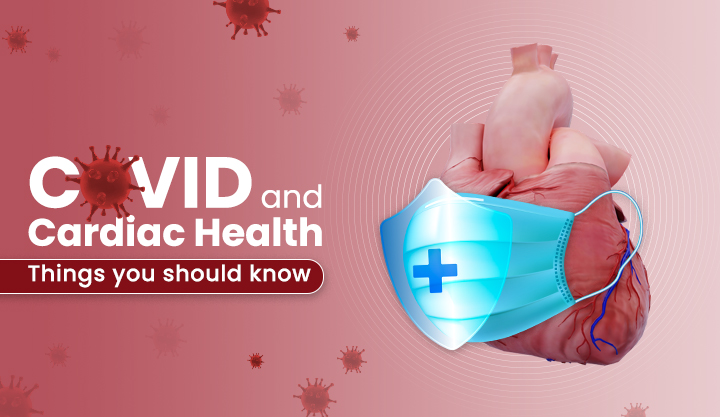
COVID and Cardiac Health – Things you should know
Coronavirus and Cardiovascular disease – The connection
Long-term side effects of COVID-19, also known as ‘long COVID,’ refer to the lingering symptoms and health complications that can persist for weeks or even months after a person has recovered from the acute phase of the disease. These symptoms can be physical or psychological and can include fatigue, shortness of breath, chest pain, heart palpitations, brain fog, anxiety, depression, and sleep disturbances. Some people who have had COVID-19 may also experience more serious long-term complications, such as lung damage, heart inflammation, and blood clotting disorders. Additionally, some individuals may be at risk for developing post-acute sequelae of SARS-CoV-2 infection (PASC), where multi-organ involvement is associated with the viral infection. It’s important to note that understanding the long-term side effects of COVID-19 is still evolving, and more research is needed to understand the range and severity of these complications fully. Additionally, further research will help us to understand who is more likely to experience long-term side effects and why. In this blog, we will help you understand the implications of coronavirus and cardiovascular disease.
COVID-19 and Cardiology: How Coronavirus Impacts Heart Health
- Myocarditis
COVID-19 and Cardiology is intricately connected. Inflammation of the heart muscle, also known as myocarditis, happens to be one of the most common heart problems after COVID-19. This occurs when the virus infects the heart tissue and causes inflammation, leading to damage and weakening of the heart muscle. Myocarditis symptoms include chest pain, shortness of breath, and abnormal heart rhythms. In severe cases, it can lead to cardiac arrest and even death. It is important to note that myocarditis is not common in COVID-19 patients, but those with pre-existing heart conditions or immunocompromised may be at a higher risk. Individuals experiencing myocarditis symptoms should seek medical attention immediately and continue to follow COVID-19 safety guidelines to reduce the risk of infection.
- Blood Clots
Another potential heart problems after COVID-19 includes thrombotic events, which occur when blood clots form in the body. These clots can block blood flow to the heart, lungs, or brain, potentially leading to serious health problems such as heart attack, stroke, or pulmonary embolism. Studies have found that people with COVID-19 are at a higher risk of developing these clots, particularly if they have underlying health conditions such as obesity or diabetes.
- Other Cardiovascular Diseases
Numerous studies have shown that COVID-19 can lead to long haul cardiovascular disease. One of them is left ventricular dysfunction, a condition where the heart’s left ventricle cannot effectively pump blood as it should. Additionally, the virus has been found to damage the heart’s blood vessels, increasing the risk of hypertension and atherosclerosis, both of which are major risk factors for heart disease.
Don’t Compromise Your Heart Health
It’s important to note that not all COVID-19 patients will experience heart issues. However, people with pre-existing heart conditions or older may have an increased risk of developing cardiac complications. Therefore, people with pre-existing heart conditions should be especially careful and consult a healthcare professional if they have any concerns.
